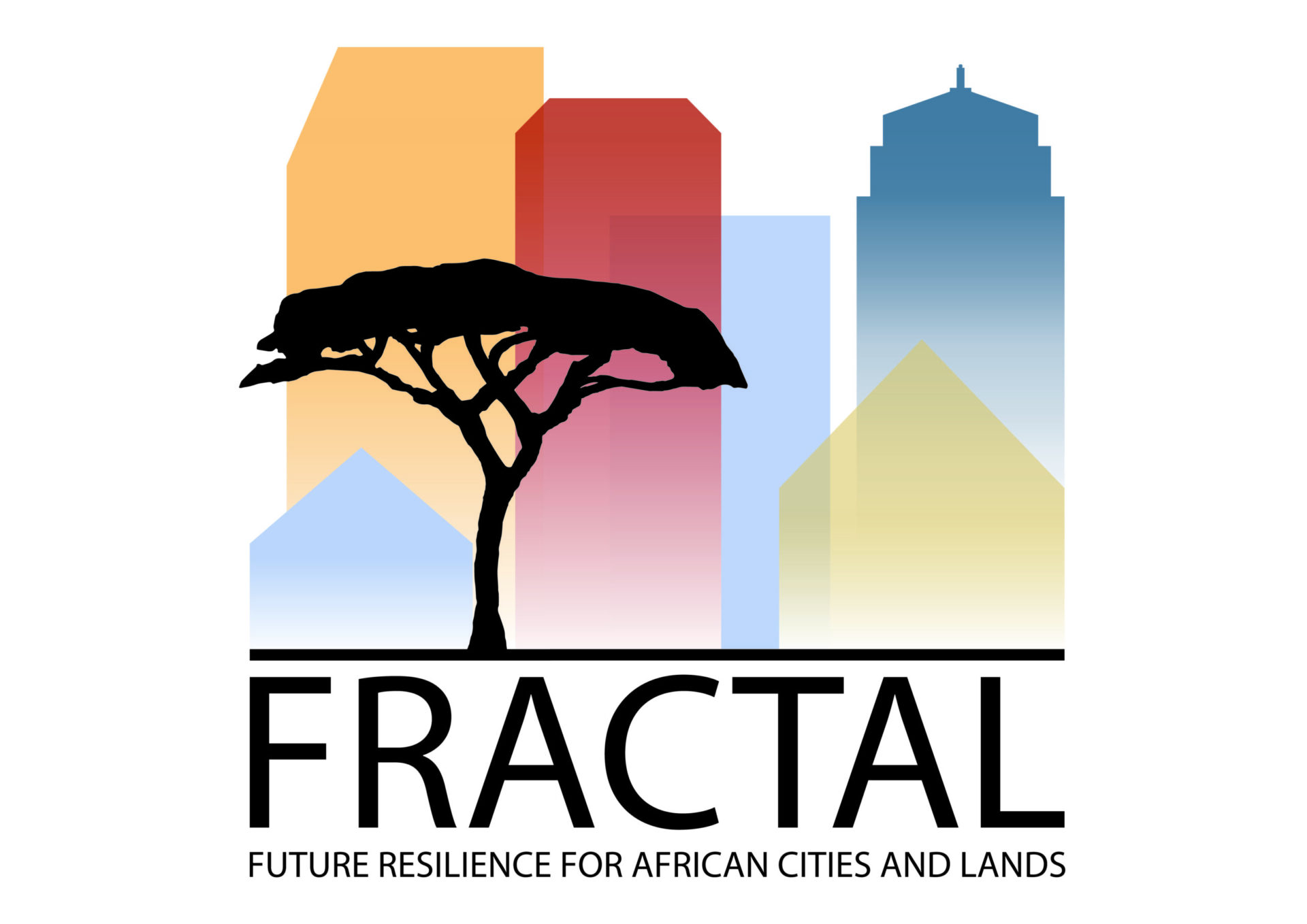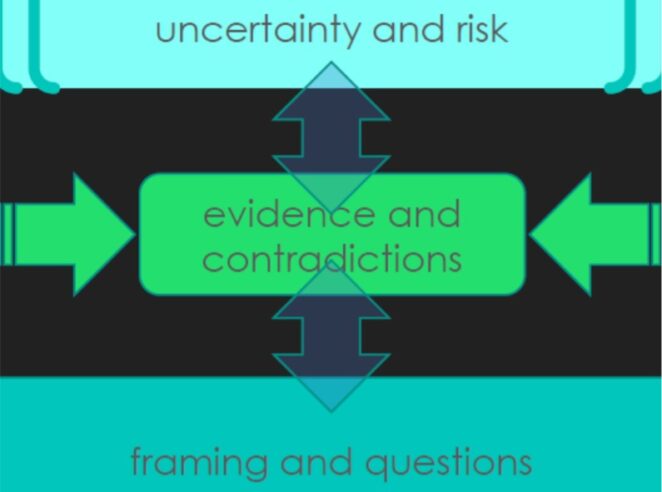Climate Information Distillation: what is it and why do we need a framework?

Introduction
Distillation: The extraction of the essential meaning or most important aspects of something (from the Oxford Dictionary of English)
We are continually engaged in processes of distillation. The outcome of distillation depends on who is doing it. What conclusions I draw from reading a scientific paper often differ from what a colleague concludes. This is because distillation is part of a broader cognitive process that involves our existing beliefs, our knowledge and experience, our values (what is intrinsically important to us), and our interests (externalities that are important to us).
New information can inform and update our beliefs and values, but our beliefs and values also influence how we engage with new information. These are all different aspects of subjectivity. In complex problem-solving situations where objectivity is impossible and no single person can provide the answers, acknowledging and even embracing subjectivity is essential to finding effective solutions.
The distillation framework is an attempt to re-think how we go about constructing information to inform decisions. The framework addresses collective distillation rather than individual distillation.
This briefing note has been developed as part of the Future Resilience of African CiTies and Lands (FRACTAL) project. The FRACTAL podcast series discusses the learning from FRACTAL in great detail. The first episode of the podcast discusses transdisciplinary information distillation and can be accessed here.
*Download the full document from the right hand column. The key messages from the document are provided below. See the full text for much more detail.
Subjectivity in climate information production
Scientists are often forced to make opinion based decisions that are informed by knowledge and experience certainly, but ultimately remain subjective. The inevitable subjectivity at play in the process of science does not necessarily invalidate the results. Science, and climate science in particular, robustly wrestles with methodological choices, assumptions, consequences for uncertainty.
Climate information production
The demand for climate information has grown significantly over the past decade and stimulated the emergence of climate services. Climate services set out to answer a perceived information need, a question. In practice, climate scientists tasked with this question tend to follow a common process:
- If subscribed to the co-production/bottom up approach: engage with local expertise to identify the climate sensitivity. Noting that often this step is challenging and many assumptions are made.
- Historical trends and variations of these variables are often analysed. To do this, some observational data set must be selected. Norms (familiarity, trust, etc.), and pragmatics (availability, spatial resolution) most often determine the selection of a dataset.
- Future projected changes in the climate variables is typically the primary focus. Here climate scientists tend to follow personal or institutional norms.
- Information will be presented in the form of maps of change or other visualisations and some necessarily partly subjective interpretation.
These processes rest on the underlying tacit scientific authority of the experts involved and the science they draw on. However, the scientific authority is extrapolated. The consequence is that the messages that emerge, that are intended to inform decision making, very much depend on the choices and decisions made around the overall process and the various steps in the process.
Post-normality
The concept of Post-Normal Science (PNS) describes decision making conditions in which facts are uncertain; values are in dispute; stakes are high; and decisions urgent.
The classic or general scientific response to this post-normal context of facts, values, stakes, and urgency, often fails to address the complexity of decision making, the role of values, and the irreducibility of much uncertainty.
A distillation framework
Facing this complexity of decision making, the role of values, and the irreducibility of much uncertainty,FRACTAL has attempted to answer the question: “How do we then proceed?” The distillation framework (Figure 2) is an attempt to map out some guiding principles, concepts and processes as we necessarily proceed.

The distillation framework is guided by some core principles:
- Transparency and provenance: Removing the foil of “trust me, science was done”, and being as clear and transparent about what you are doing and it’s and your limitations and strengths.
- Humility: Being willing to acknowledge ignorance while not withholding expertise and to recognize knowledge and expertise in those outside of the science community
- Dialectic: Conversations between equal partners are critical to counter the didactic norms4 of science informed decision making
- Trust: Complex, contexts involving deep disciplinary expertise, experience and knowledge and many knowledge holders, rests strongly on building and maintaining trust. Collective distillation rests on being able to trust others roles in the process.
And by some key concepts:
- Added value: Not all facts, knowledge, understanding, expertise, adds value to a particular context. In particular, being a “scientific result” does not automatically add value.
- Assumptions and choices with consequences: Building on the principle of transparency and provenance, a rigorous interrogation of assumptions and choices made, and unpacking of the potential consequences
- Good enough: In direct response to “decisions are urgent”, a consideration of what amount of knowledge or information is sufficient to inform a decision is important. Related to added value in that more or “better” information may not substantively add value to a decision. This all challenges decision making that is delayed by insufficient information as it begs the question, what is sufficient information?
Elements of facilitation
Climate information distillation is facilitated by several elements. For more details on the following elements, please refer to the publication:
- Start conversations:To instil the dialectic principle (see above), distillation should start with conversations. There are many possible ways of doing this. One approach used in FRACTAL is through climate risk narratives, or stories of the future. See the publication for more detail.
- Consensus, contradiction, and collective decisions:The objective of the conversations should be to distill the essential elements, the important aspects, of the information context. In the FRACTAL case, this took the form of identifying the burning issues within each city. While collective distillation processes often default to reaching consensus, or at least the appearance thereof, this may not always be the most valuable objective at every step in the process. Contradictions can be informative in their own right, forcing a consensus risks losing this information and risks disenfranchising important knowledge holders. Again, in the FRACTAL case, multiple climate narratives were developed for each city in order to capture the contradictions uncertainty in the climate projections, thus resisting the desire to develop a single consensus narrative. See the publication for more detail.
- Write narratives:The importance of narratives as personal sense making tools was noted above. However, narratives are also shared. As much as narratives are informed by the evidence or information we engage with, narratives are often informed and modified through interaction with others as narratives are communicated. Being forced to express information or knowledge in the form of an internally coherent story is extremely valuable. It encourages an integrated systemic thinking about a context and how elements relate to each other. Co-producing narratives encourages different disciplines, and experts representing those disciplines to wrestle with framings, language, and understandings. See the publication for more detail.
- Adding value:Adding value is where the traditional climate science/services process intersects with the distillation framework. Noting that we started a conversation using the most basic of climate information assumptions, we can begin to ask how these assumptions might be usefully refined. How do we add climate information value to the process? Preceding this step by rich conversations, distilling the essential elements about the context including contradictions, and writing narratives, including contradictory narratives, means that we arrive at the question with a rich background to guide us. See the publication for more detail.
This briefing note was written by Chris Jack with inputs from Richard Jones, Jessica Lee, Anna Steynor, Piotr Wolski, Anna Taylor and Alice McClure.
Suggested citation
Jack, C., et al. (2019) Climate Information Distillation: what is it and why do we need a framework? FRACTAL Briefing Note. University of Cape Town, Cape Town, South Africa.
Related Articles
Related resources
- FRACTAL project website
- FRACTAL: Future Resilience for African Cities and Lands
- Co-producing climate knowledge – Great in theory, but how about practice?
- Africa's Climate: Helping decision-makers make sense of climate information
- Receptivity and judgement: expanding ways of knowing the climate to strengthen the resilience of cities
- The Story of Water in Windhoek: A Narrative Approach to Interpreting a Transdisciplinary Process
- FRACTAL Podcast Series - Exploring transdisciplinary approaches to support resilience and adaptation decision making
(0) Comments
There is no content